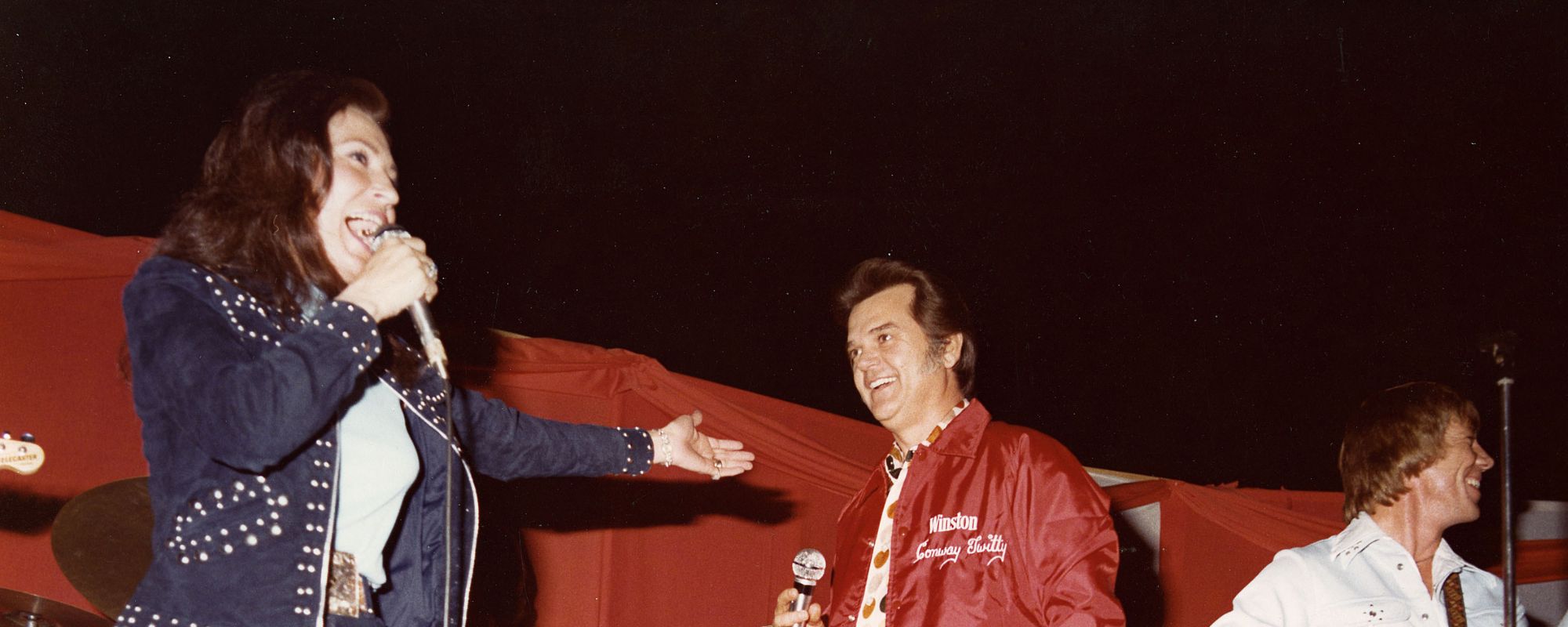A film inspiring a musician to write a song is one thing, but Bobbie Gentry turning a 1952 potboiler into her entire stage persona and one of her signature hits is another. Decades before Reba McEntire would release the version most younger country fans would recognize, Bobbie Gentry released “Fancy” on Capitol Records to tremendous critical acclaim. It was one of the smoky singer’s biggest hits, peaking at No. 8 on the Billboard Adult Contemporary chart and garnering her a Grammy nomination for Best Contemporary Pop Vocal Performance, Female.
Videos by American Songwriter
“Fancy” was also one of Gentry’s most political songs, describing it in the mid-1970s as her “strongest statement for women’s lib, if you really listen to it. I agree wholeheartedly with that movement and all the serious issues that they stand for—equality, equal pay, daycare centers, and abortion rights.”
Somewhat ironically, Gentry loosely based her hit song (and her stage name) on Ruby Gentry, a movie that doesn’t necessarily end with a message of female empowerment. On the contrary, the film’s titular character is summarized as a “white-trash seductress” in Eric Weisbard’s Listen Again: A Momentary History of Pop Music. There’s no redemption arc, either. The “seductress” in question ends up an ostracized fishing boat skipper by the film’s conclusion.
Nevertheless, it was obviously good inspiration.
Bobbie Gentry Took Her Stage Name and Hit Single From This 1952 Film
Considering Eric Weisbard described Ruby Gentry as a potboiler, a film that someone makes specifically to make money and not necessarily out of a great creative desire or inspiration, it’s all the more surprising that Bobbie Gentry was able to turn that movie into virtually the entire basis of her career. Most notably, she lifted the film’s main character’s last name, Gentry, for her own. (Born Roberta Lee Streeter, Bobbie was her actual nickname.) “My mother’s name is Ruby,” Gentry once told a reporter, per the Memphis Magazine. “I was intrigued with [Ruby Gentry] and started using that name. I like it still.”
Moreover, Gentry loosely based the character of her hit song, “Fancy”, on Ruby Gentry’s character in the movie. Townspeople blame Ruby for a crime she didn’t commit, largely due to what those around her perceive to be an overt promiscuity. Her revenge-seeking actions throughout the film had the potential to shift the narrative around women’s sexuality, had they actually worked. But in the end, Ruby is the misdoer, not the other way around.
Two decades after Gentry released “Fancy”, Reba McEntire put out her own version, which would surpass the original by several chart positions. McEntire’s rendition of “Fancy” would become a signature song for the singer, too, peaking at No. 8 on the Billboard and RPM country charts in the U.S. and Canada.
Photo by Keystone/Hulton Archive/Getty Images









Leave a Reply
Only members can comment. Become a member. Already a member? Log in.